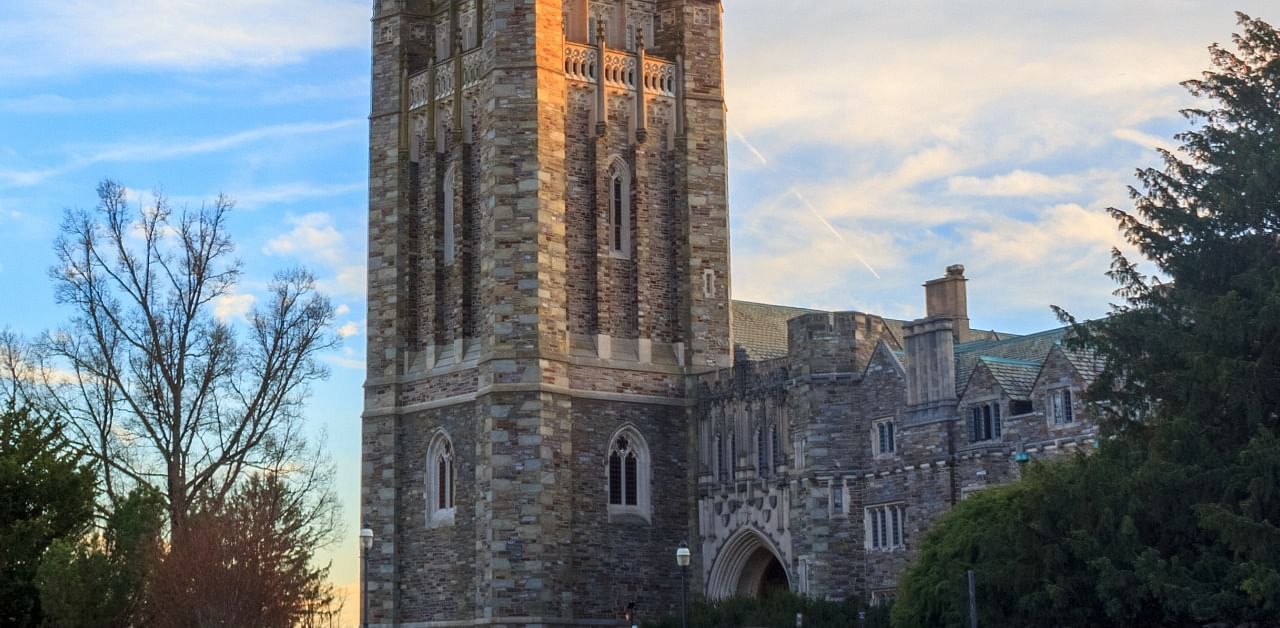
The Trump administration said this week that it was investigating whether Princeton has violated federal civil rights law, suggesting that a public expression of contrition for a history of “systemic racism” at the university was an acknowledgment of illegal behavior.
“You admitted Princeton’s educational program is and for decades has been racist,” federal officials wrote in a letter to the school Wednesday.
The investigation is the latest escalation in the administration’s war against the Ivy League for its policies on matters of race. Last month, the Justice Department accused Yale of violating federal civil rights law through its admissions policies, and it has supported legal efforts to end affirmative action at Harvard.
In their letter to Princeton this week, officials cited a public statement made this month by the school’s president, Christopher L. Eisgruber, in which he charged university leaders with developing plans “to combat systemic racism at Princeton and beyond.”
Invoking the protests and national reckoning that followed the killings of Black people by police officers this year, Eisgruber announced a series of policy initiatives to diversify Princeton’s faculty and make the campus more welcoming to underrepresented groups.
He said racism persists at Princeton and in society “sometimes by conscious intention, but more often through unexamined assumptions and stereotypes, ignorance or insensitivity, and the systemic legacy of past decisions and policies.”
In its letter informing Princeton of the investigation, which was earlier reported Thursday by The Washington Examiner, the Education Department said that “based on its admitted racism,” Princeton may have received more than $75 million in taxpayer funding under false pretenses since Eisgruber became president in 2013.
In a statement, Princeton defended Eisgruber’s letter, saying that it was an attempt to reckon with the “continued effects” of systemic racism throughout history, and that the university was operating within the bounds of federal civil rights law.
“It is unfortunate that the department appears to believe that grappling honestly with the nation’s history and the current effects of systemic racism runs afoul of existing law,” Princeton said.
Terry Hartle, a senior vice president at the American Council on Education, a higher education trade group, called the investigation “a taxpayer-funded, politically motivated fishing expedition,” and said it was an unwarranted attack on genuine efforts to recognize and to right the wrongs of history.
“It’s to their great credit that leading universities are asking themselves what they should have done differently in the past, and what they will do differently in the future to be more welcoming and inclusive,” Hartle said.
The Trump administration declined to comment beyond acknowledging the authenticity of its letter to Princeton, which demanded a response within 21 days. It asked in its letter whether Eisgruber, when he said that racist assumptions “remain embedded in structures of the university itself,” was acknowledging that Princeton’s assurances to the government and the public that it does not discriminate “have been false and misleading.”
Eisgruber’s letter cited as an example of systemic racism the fact that “Princeton inherits from earlier generations at least nine departments and programs organized around European languages and culture, but only a single, relatively small program in African studies.”
The investigation follows a series of moves by the Trump administration challenging Ivy League universities. In August, after a two-year investigation of a complaint by a coalition of Asian American organizations, the Justice Department accused Yale of violating federal civil rights law by illegally discriminating against white and Asian American applicants.
The department demanded that the university stop considering race or national origin in its next admissions cycle or face a federal lawsuit, and set a deadline of earlier this week for it to comply. Yale declined, but the department had not yet filed suit by Thursday.
Two years ago, the Justice Department publicly backed Asian American students in a lawsuit accusing Harvard of systematic discrimination. A federal judge ruled in Harvard’s favor last year, but the government has continued to support the plaintiffs, including at a federal appeals hearing Wednesday.
Harvard and Yale have denied that their policies are discriminatory, saying their admissions processes adhere to both federal law and Supreme Court rulings that have generally supported affirmative action.
Legal experts have described the Trump administration’s moves against the Ivy League schools as an extension of conservative legal efforts to end race-based college admissions policies, a battle that is expected to eventually reach a Supreme Court that leans more conservative after two appointments by President Donald Trump.
Several challenges to admissions practices, including at Harvard, the University of North Carolina at Chapel Hill and the University of Texas at Austin, have been orchestrated by Students for Fair Admissions, a group that opposes affirmative action, and are making their way through the federal courts.
“There is no such thing as a nice form of race discrimination,” Eric Dreiband, assistant attorney general for the civil rights division, said in announcing the finding against Yale last month. “Unlawfully dividing Americans into racial and ethnic blocs fosters stereotypes, bitterness and division.”
Yale said it looked not just at academic achievement by applicants, but at their interests, demonstrated leadership skills and the likelihood that students would “contribute to the Yale community and the world.”
“At this unique moment in our history, when so much attention properly is being paid to issues of race, Yale will not waver in its commitment to educating a student body whose diversity is a mark of its excellence,” Peter Salovey, Yale’s president, said last month.